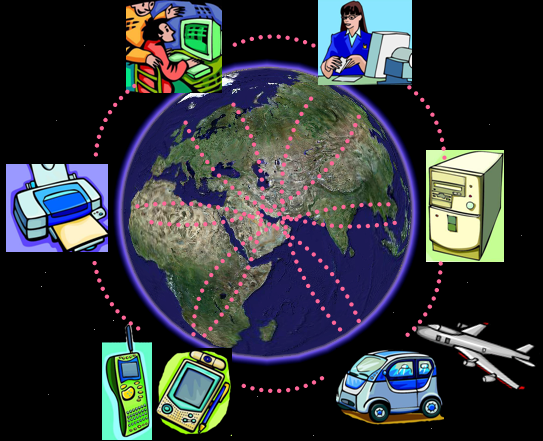The Future of The Internet: Web 3.0?

The Internet is constantly developing and expanded by semantic intelligence. We have traveled past Web 1.0 and Web 2.0 and currently, taking into account the materialization of Web 3.0.
All these steps are associated with the promotion and development stages of the Web, Web 1.0, the combination of basic information in Web 2.0, the "Social Web", the people and information, and Web 3.0, the in the context of major technological and social development. On the Web 3.0 people, computers, Internet communities and companies use the same protocol that is before the programming silos and interact with media, information and intelligent thoughts to craft new ideas on the spot. In fact, the Web will always be with human intelligence, learning abilities.
The beginning of the Web 3.0 cause the current Web Content postponement. New materials are determined by the interaction of social and mechanical process in comparison to now, where online community grants to the social relevance through social book marking, the viral media and content authorship. Users will be aware that information is no longer the driving force leads to the search on the Internet, but this knowledge is the driving force. So then how does information and knowledge differ? Knowledge integrates the know, the Web 2.0, using many intelligent web communities and databases.
Users are no longer interested in or searching for a single way of collecting information, but the knowledge they can collect at all levels is the most important. This can be done by all online content or the media. A whole new kind of learning and knowledge absorption arises from this through the written word, video, audio, photo and social inputs.
The important question, which in Web 2.0 was the fact that computers, people and trains were not on the resource by silo programming. In simple terms, computers were not able to understand spoken words in a video, translate it into a Word document and distribute them through social networks in seconds. With the advent of Web 3.0 all this will be possible as there is a desire for more knowledge-based content-sharing.
Content authors, providers and the media must be aware that shifts in the context of the standard Web 3.0. They have their companies fully prepared for a Web information, where information on new information and knowledge on the spot. In addition, they will need to tackle the new technology is increasing for this reason, about the importance, relevance, theory and know-how, apart from documents, data and program code in a way that both humans and computers and function with, understand and to learn new knowledge from.
If for some reason they do not reach the standard improved possibilities for the publication of new content then they are not its users, the search for new learning and new value added.
This entry was posted on at 11:11 AM and is filed under Inspiration, News, Technology, Web. You can follow any responses to this entry through the RSS 2.0. You can